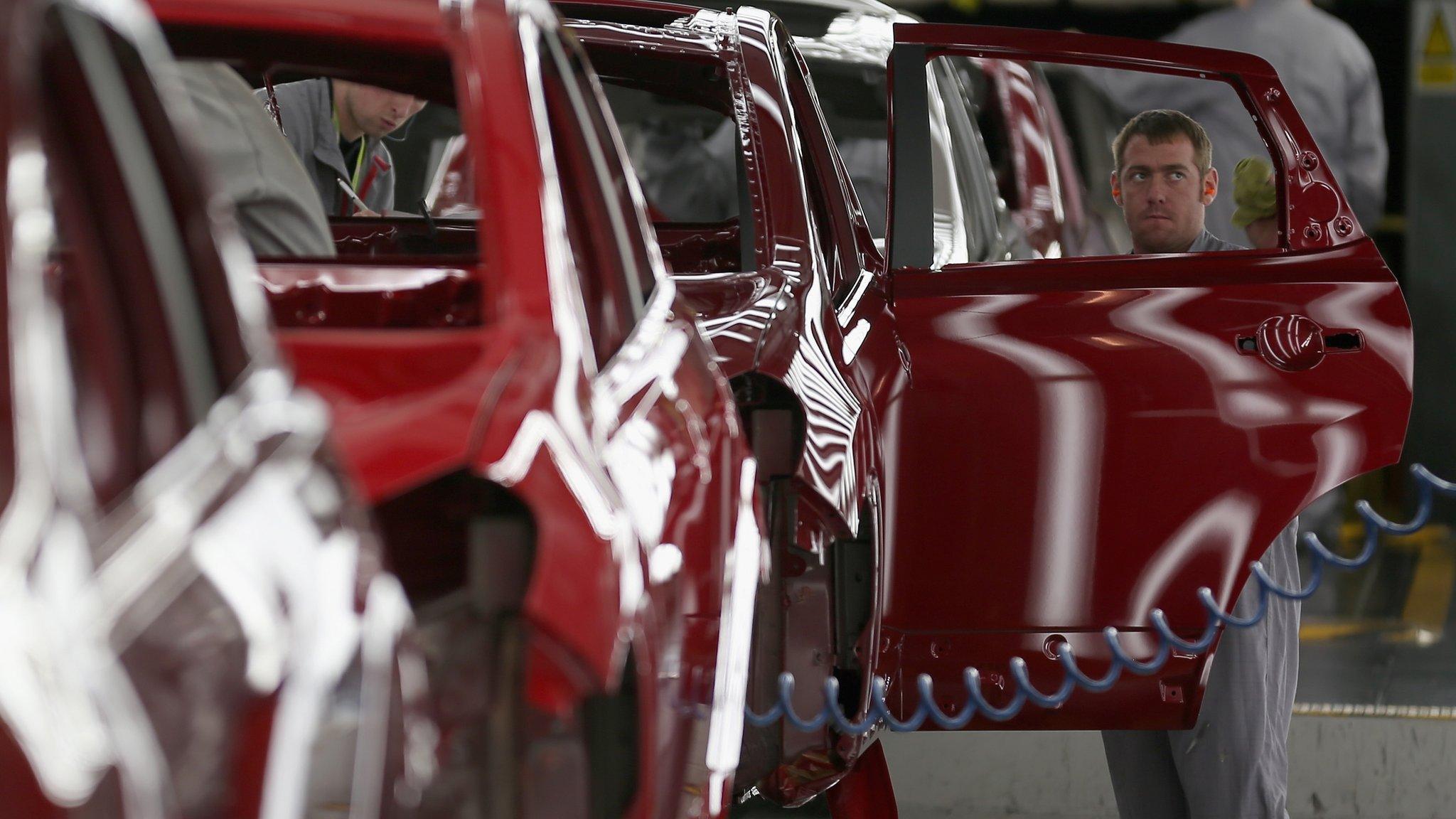'Highest' amount of traffic on roads in Wales reported
- Published
- comments
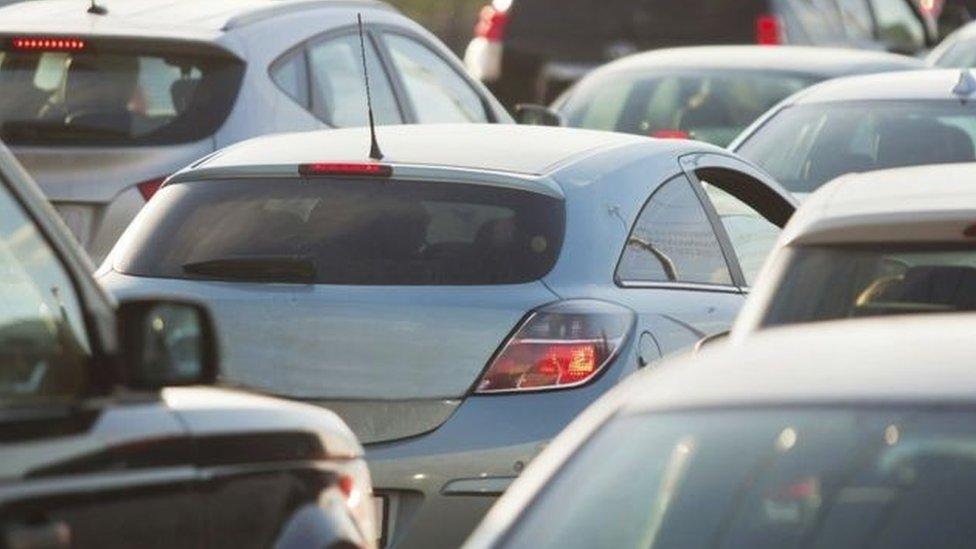
Sustrans Cymru called for cities to invest more in cycling and pedestrian routes
The volume of traffic on Wales' roads has reached its highest level, a new report has revealed.
The figures, external showed the amount of traffic topped the previous peak in 2007.
The director of the Royal Automobile Club (RAC) Foundation said the peak was "not a surprise" given the growing population and economy.
But charity Sustrans Cymru expressed "real concern" about the congestion and pollution implications.
In 2016, the total volume of motorised traffic in Wales was 29 billion vehicle kilometres, which is equivalent to 9,322 vehicle kilometres (5,826 miles) per person a year.
Vehicle kilometres are measured by multiplying the number of vehicles in an area by the average length of their trips.
Traffic in Wales previously peaked in 2007 at 28 billion vehicle kilometres, before falling over the next five years and then rising again.
The figures, collected by the Department of Transport on behalf of the Welsh Government, said there was more traffic on both motorways and rural roads in 2016.
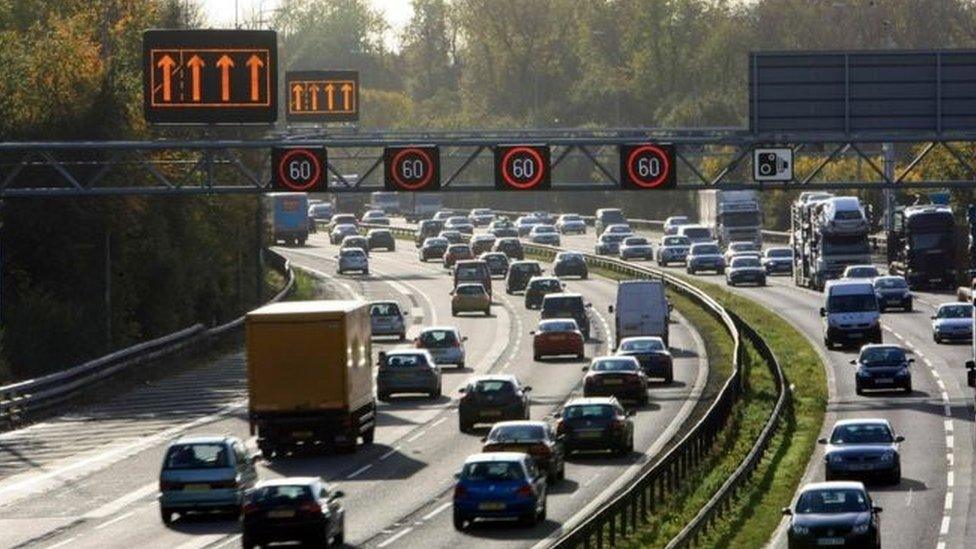
Motor traffic in Wales is at an all time high
The report also found there was an increase in light vans, bicycles, cars and taxis on the road, but a decrease in the number of buses, coaches and lorries.
Cardiff, Newport, Carmarthenshire and Rhondda Cynon Taff had the highest traffic volumes, while Merthyr Tydfil and Blaenau Gwent had the lowest.
Steve Gooding, director of the RAC Foundation, said: "With more people than ever in Wales, strong employment statistics and relatively cheap cars - to buy if not to run - then the figures are not a surprise.
"Around 70% of Welsh workers rely on a car to get to the office.
"The continued decline in bus mileage suggests slumping patronage and for those who want to get people out of cars and onto public transport this is an issue that needs better understanding.
"Unfortunately many bus services require taxpayer subsidies and in a time of tight government budgets the money will be hard to find."
Sustrans Cymru director Steve Brooks said traffic increase caused serious congestion issues, made roads less safe and polluted the air.
He added: "Congestion is a real problem in Wales' major cities and many people are driving distances that could easily be walked, cycled or are covered by public transport.
"We need to get people thinking differently about shorter journeys, seeing these as an opportunity to get our daily dose of exercise and even mindfulness before and after a day at the office or school."
The Welsh Government said improvements to the M4, A55, A40 and A494, a new rail franchise, and a "fully integrated metro system" in south Wales planned over the next few years would create a modern, integrated transport network for communities across Wales.
- Published14 August 2014
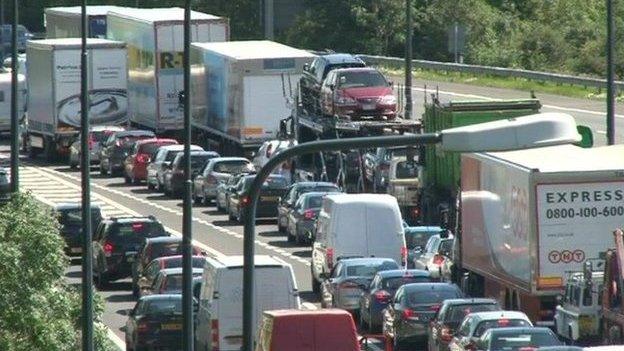
- Published7 October 2017
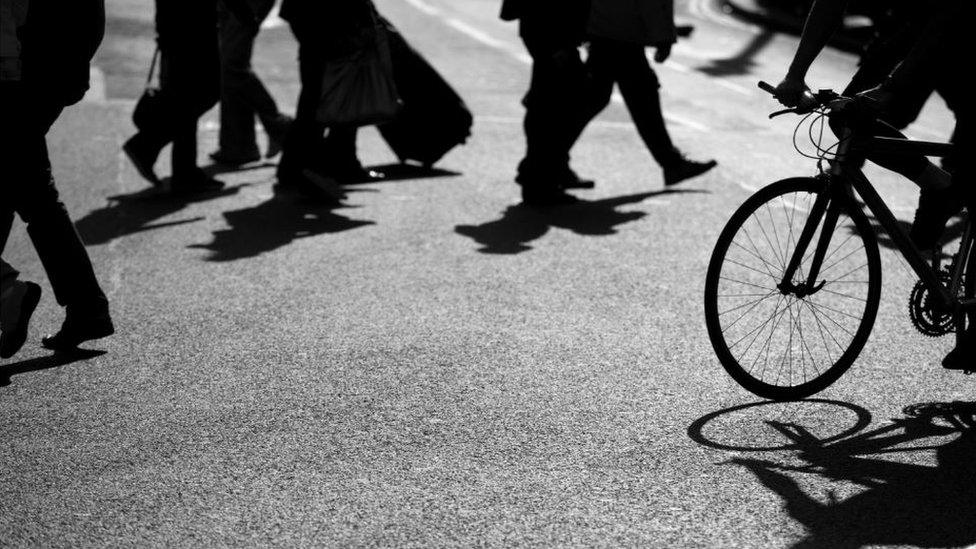
- Published20 January 2016
